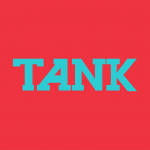 Jon Eno from Hot House Music has a fabulous blog on their website, covering many different careers in music related industries, from Computer Game Audio to Music Therapy.
Jon Eno from Hot House Music has a fabulous blog on their website, covering many different careers in music related industries, from Computer Game Audio to Music Therapy.
 Dave Endsor, head of content at PR and digital agency Tank, shares his advice for a career in PR.
Dave Endsor, head of content at PR and digital agency Tank, shares his advice for a career in PR.
PR is ultimately about telling a story – a story that journalists want to publish, and audiences will read and share. Critically, they are stories that effectively share the messages you’re trying to communicate, without being overtly salesly. Your job in PR is to find these stories – whether that’s in-house for the business you work for, or for one of your many clients if you work at an agency.
Whatever the story, it has to be newsworthy. You need to find the ‘hook’ – the reason a journalist will use it. You might issue a press release announcing company news, or share thought leadership content that uses the expert knowledge you have to hand – either your own, your team’s or your clients. You might even develop something creative that makes national and international headlines!
In-house and agencies
You might work ‘in-house’ for a company where the role is solely focused on its own communication strategy. This might be for a council or government organisation, a charity or not-for-profit, for a consumer brand of any shape and size, or for an organisation that sells its services to other businesses.
Alternatively, you might work for an agency. A company that carries out PR services for a number of different clients, often working with an in-house individual, or directly with a company’s owner or board of directors.
The clients that agencies work for can vary significantly. For example, some agencies may work for a mixture of B2C and B2B clients, such as Tank. Others may solely focus on one of those areas. Some may even focus their work in one particular sector, such as travel, retail, or even PR for well-known individuals.
How to know if PR is for you?
How do I get into PR?
This article from Prospects offers excellent advice on the subject.
You might first study and work in journalism before making the switch to a PR role in-house or at an agency.
Alternatively, you might study an English degree and apply for a graduate position or junior role. Strong writing skills are a must, but so are general communication and people skills as well as creative thinking. It helps to have ideas!
Other helpful resources:
- PR officer job description
- PR account executive job description
- Chartered Institute of Public Relations
- Public Relations and Communications Association
Dave Endsor, head of content at digital PR agency Tank, also shares his advice for a career in social media.
In the professional world, social media is an essential business tool that helps a huge range of companies boost their brand profile and reach customers more directly, in a meaningful way.
You’ll often be responsible for: the day-to-day management of social media channels; answering customer queries; writing and scheduling posts through software such as Hootsuite, Falcon or Sprout Social (there are many more!); creating calendars of events and analysing the results. You may also run social advertising campaigns, doing everything from promoting an event to advertising your products or services to your target audience.
Jobs are available working in-house for one company, as part of an agency in charge of multiple clients or working for yourself as a freelancer.
All companies can use social media in some form or another. Whether it’s Greggs tweeting pastry pictures to entertain its loyal fanbase, the engaging tone of voice and content published by Innocent, or more niche brands like the Schoolwear Association which uses Facebook to strike up conversation with its retailers – social media management can vary dramatically. It’s important to understand your audience and, in an agency, it helps to have chameleon-like ability to work with different sectors.
How to know if social media is for you?
If you have a passion for social media in your personal life, then you may be able to help a business use it too. It’s a varied role that requires strategic thinking, management skills and a lot of creativity, with responsibilities varying from company to company and as you progress in your career.
The sector changes as quickly as the platforms it uses, so anyone who thrives off variety and isn’t scared to try new things will be a great fit. Prepare to be open-minded and reactive too. Your favourite social app might not be the best fit for your client, so even if you’re a TikTok addict, you’ll need to be comfortable working with Facebook or LinkedIn as well.
Writing well and in lots of different ‘voices’ is essential. A creative mind and the ability to produce interesting images, videos and more is key for this content-heavy role.
You’ll need to be a great communicator, and not only behind a screen. Alongside producing messaging that your brand’s audience understand and relate to, you may be asked to share your expertise with your colleagues. At Tank, our social team also offers training to our clients so they can become social experts themselves, and we also help businesses to develop a clear and effective social strategy too.
What are the best routes to start a career in social media?
You could start your career straight after school through a number of apprenticeships or work experience schemes. Some entry-level roles require a degree – this varies from employer to employer – but subjects such as English, media, marketing or business are commonly accepted.
Whichever route you take, it’s important to make connections online to boost your skills and help you gain that first role. Follow industry leaders on Twitter and connect with those already working in social media on LinkedIn. Platforms such as Facebook also have excellent free training tools.
Helpful resources
- Social Media Today – news website
- Social Media Managers Facebook Group
- Social Media Geek Out Facebook Group, created by Matt Navarra. Matt also issues a weekly newsletter which offers insight into all social media news, changes and happenings.
- Social media manager job description
